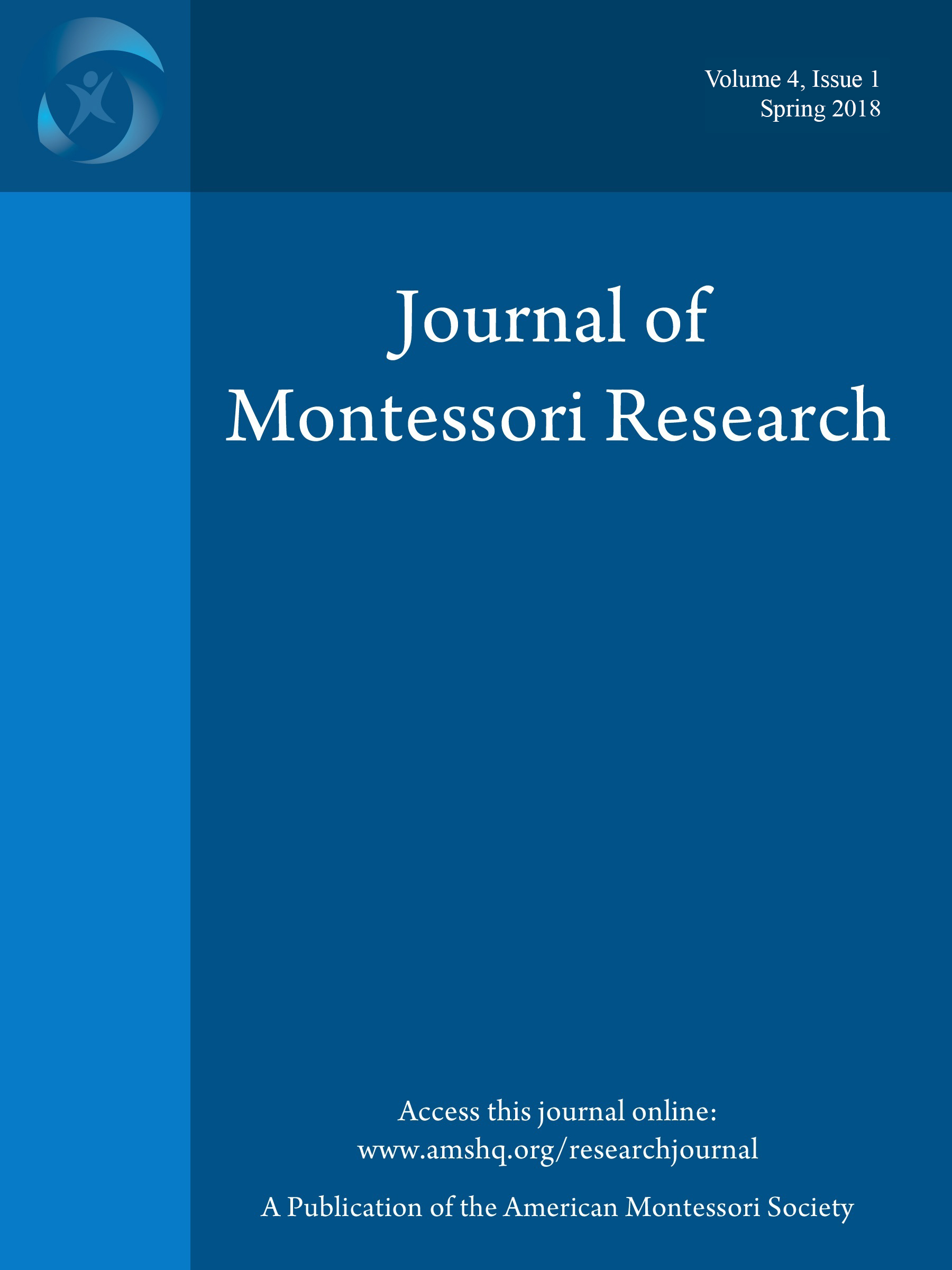To What Extent Do Parents of Montessori-Educated Children “Do Montessori” at Home? Preliminary Findings and Future Directions
DOI:
https://doi.org/10.17161/jomr.v4i1.6737Emneord (Nøkkelord):
Montessori, Parent Education, ParentingSammendrag
Few, if any, empirical studies have explicitly examined the home environments of Montessori-educated children, and specifically whether or not Montessori parents reinforce or undermine their children’s Montessori education at home. With a sample of 30 parents of Montessori-educated toddlers and preschoolers attending a private Montessori school in the Midwest, this cross-sectional study examined Montessori parents’ knowledge of Montessori methods and their parenting beliefs and behaviors at home. Results suggested that Montessori parents from the targeted school were knowledgeable about and valued Montessori methods, even though few had a Montessori education themselves. Parents in this sample varied in their parenting behaviors and choices at home, with some parents who intentionally reinforced Montessori principles and others whose behaviors were inconsistent with a Montessori approach. Findings from this preliminary study provide a first glimpse into the beliefs and behaviors of Montessori parents from which future studies can build upon. Montessori educators and administrators will benefit from future research involving Montessori parents, particularly for those who offer Montessori-based parent education sessions to the families they serve.
Referanser
Bagby, J. H., & Jones, N. A. (2010). Montessori education and practice: A review of the
literature, 2007-2009. Montessori Life, 22, 44-48.
Havis, L. (2009). Home-school relations. The Montessori Observer, XXX (1), 1-4.
Lillard, A. S. (2012). Preschool children’s development in a classic Montessori, supplemented
Montessori, and conventional programs. Journal of School Psychology, 50, 379-401.
McFarland, S., & McFarland, J. (2013). Montessori parenting: An idea whose time has come.
Montessori Life, Spring, 30-39.
Murray, A. (2012). Public knowledge of Montessori education. Montessori Life, 24 (1), 18 – 21.
Pottish-Lewis, P. (2011). Elementary classroom management: How to implement cosmic
education. Retrieved online August 1, 2017 from https://assets1.casaschool.nl/uploads/document/file/70/Elementary_Classroom_Management_Cosmic_Education.pdf
Robinson, C., Mandleco, B., Olsen, S. F., & Hart, C. H. (1995). Authoritative, authoritarian, and
permissive parenting practices: Development of a new measure. Psychological Reports, 77, 819-830.
Woo, S. (2014). Creating an amazing Montessori toddler home environment. Montessori Life,
(2), 54-59.


